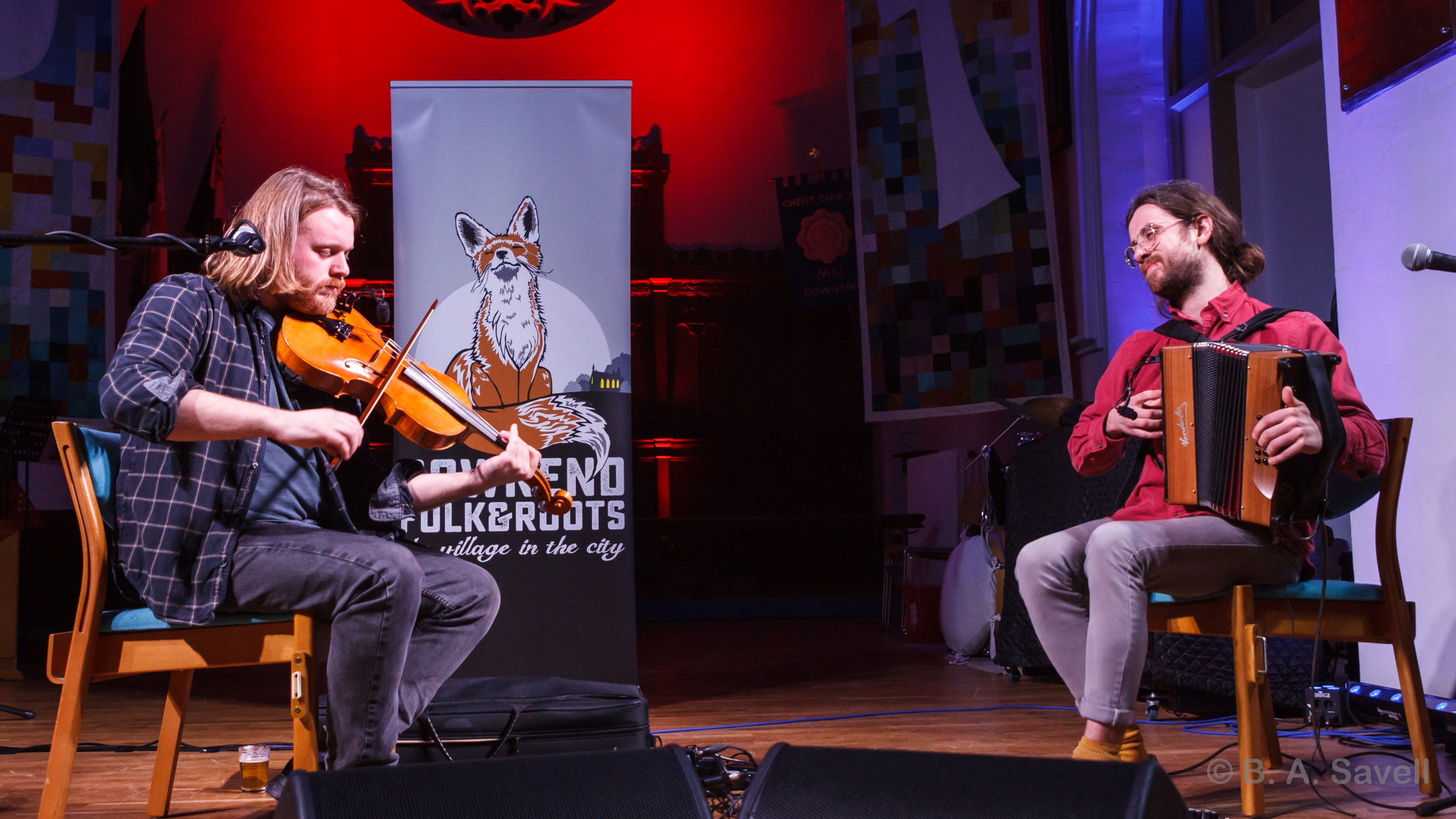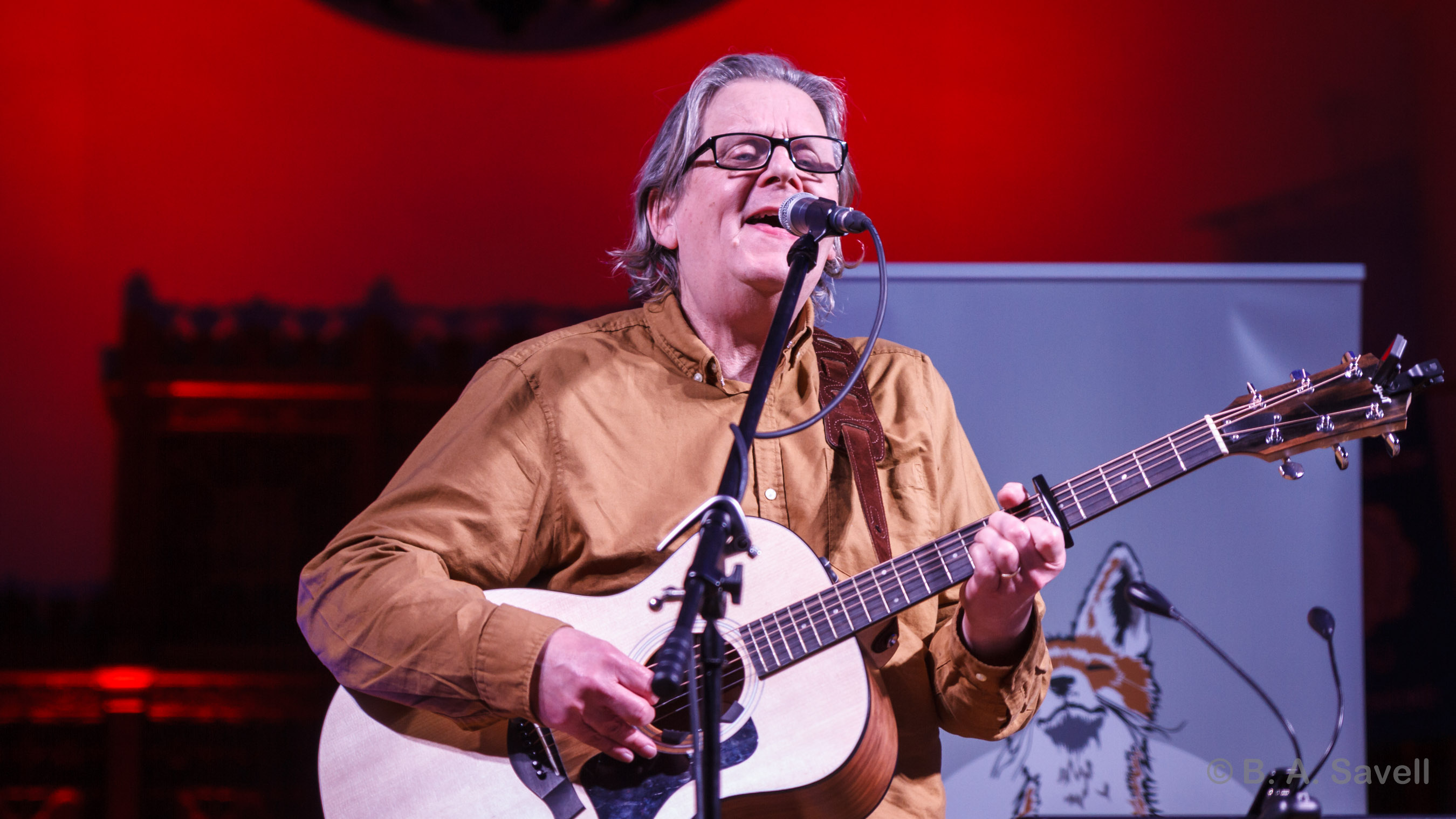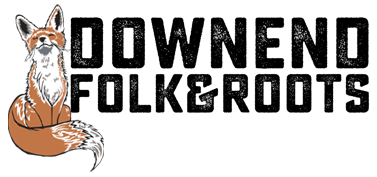TOM MOORE & ARCHIE MOSS are artists. They're magicians. They're conjurers. They might hold a viola (Moore) and an accordion (Moss) but they could just as easily use paints, film or the supernatural to create their world. This is folk music by way of black & white European cinema, by way of haunting, fragmented sketching.
Do you know that feeling just before a storm breaks? The prelude, the lull, the moment when the atmosphere changes, when the world holds its breath. That moment when you know something is about to happen but you're not sure when. The whole of this extraordinary set from these two incredible musicians feels like that. Giga is, almost certainly, a jig... but it's a jig that never allows you to dance. It builds and breaks and slows and builds again but it never permits you to relax into the tune. This gives it incredible power even as it constantly wrong foots you. It's dance music that's impossible to dance to.

Windmill Hill has an experimental sparse-ness and segues into Nina's Tune. It's almost unbearably tense as disjointed movements pile up next to one another, each one more ghostly than the last, each one threatening to spill out into something smooth and reassuring. It almost never does though. Instead, it feels as though a noir-ish Scandinavian dream is slipping through your fingers.
Moore's viola is echoed and looped - at times you'd swear that there are two, three or four of his instrument on stage - and on Universeum he helps a sweeping, star-gazing soundtrack unfold. The closest comparison is probably Lau and all of their odd, gauzy cine-scapes and, like Lau, these are tunes that, ideally, could use some films to help them coalesce.
Moss adds a droning base with his accordion, setting up a meniscus that the tunes skip across, like a dragonfly or a hummingbird. The viola hovers over things, threatening to break the surface but instead, landing, pausing and flying off again. On Omens, from the latest album Spectres, it's almost a relief when the thin base layer is, eventually, broken and the stompbox drives a tune but, even then, the threatened deluge fails to materialise. Safety is so close but never arrives.
Pigeon City/Trapdoors brings the evening to a close. It started life as a field recording on the late-night streets of Bristol but is now a disquieting, complex, hypnotic meditation on isolation, urban nature and darkness. It is startling, intricate and devastatingly beautiful. This is music for the head, not for the feet.
And then, after all of the experimentation, all of the pretty snatches, all of the tantalising moments, Moore and Moss play a simple, beautiful, acoustic folk tune - no electronics, no tension. The 7th of October almost says "yeah, so, we could do this stuff all day, do it better than anyone else, but we can do that other stuff too". The "other stuff" might be more difficult, might be disconcerting, might be uncomfortable but it's deeply rewarding.

MIKE WEAVER starts the evening in a much more comfortable way. His songs are soaked in nostalgia; he constantly reminds us of his age, his childhood, the people he used to know, the pubs he used to love and stories from before we were all born. His songs are lovely, his voice honest and his heart is, very much, in the right place. If he, unashamedly, looks back then Moore and Moss are resolutely looking forward.
Words: Gavin McNamara
Photos: Barry Savell
